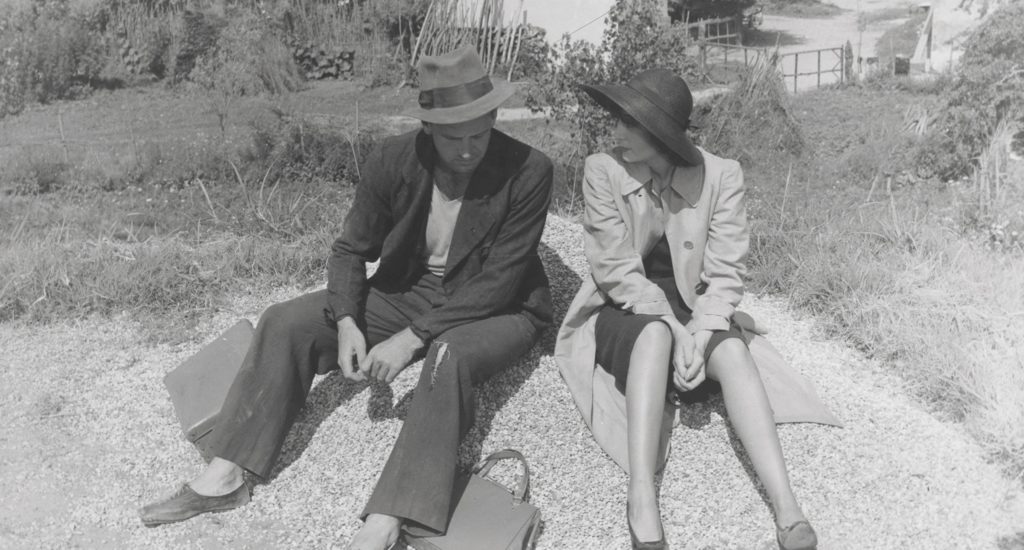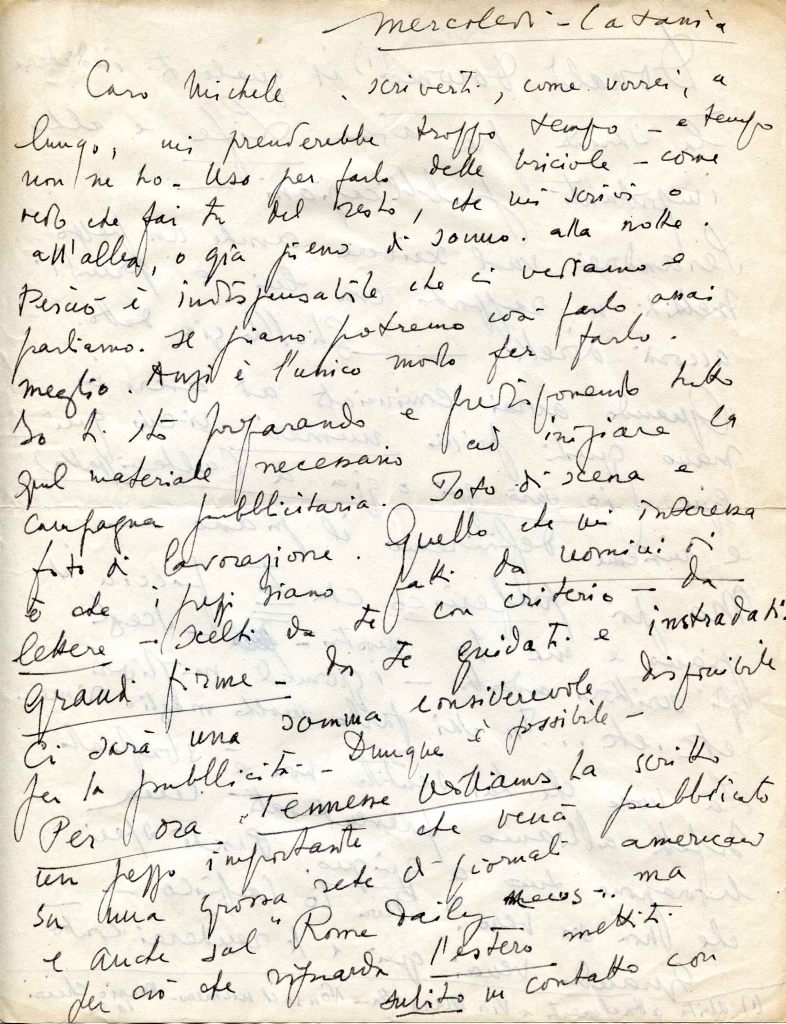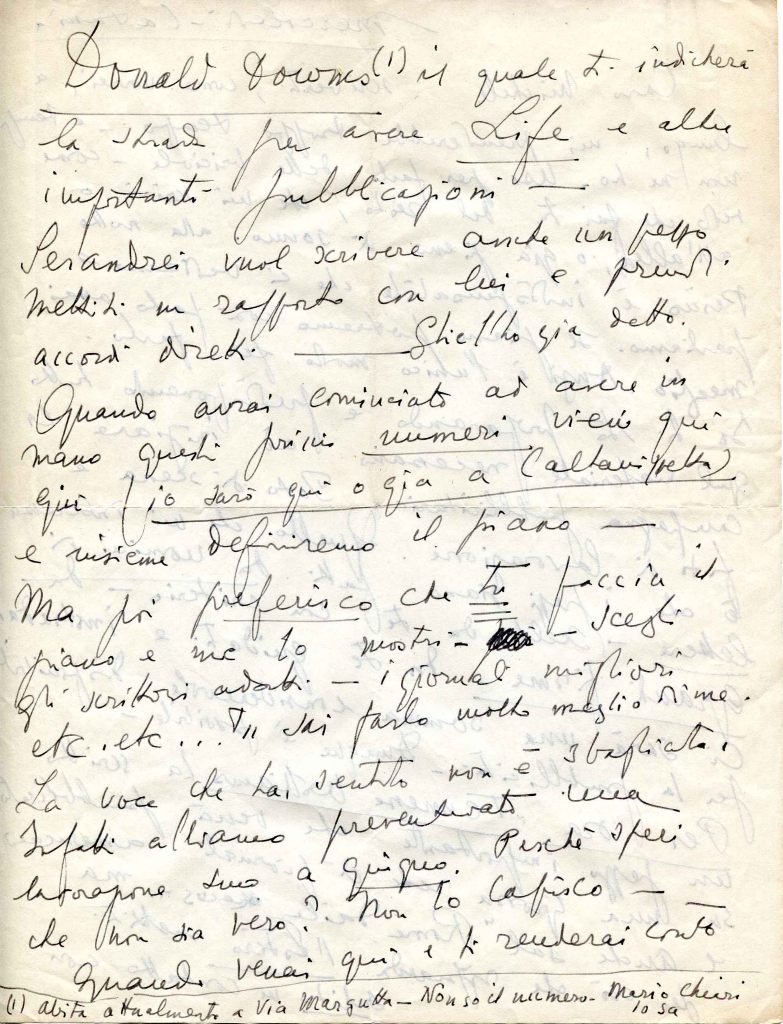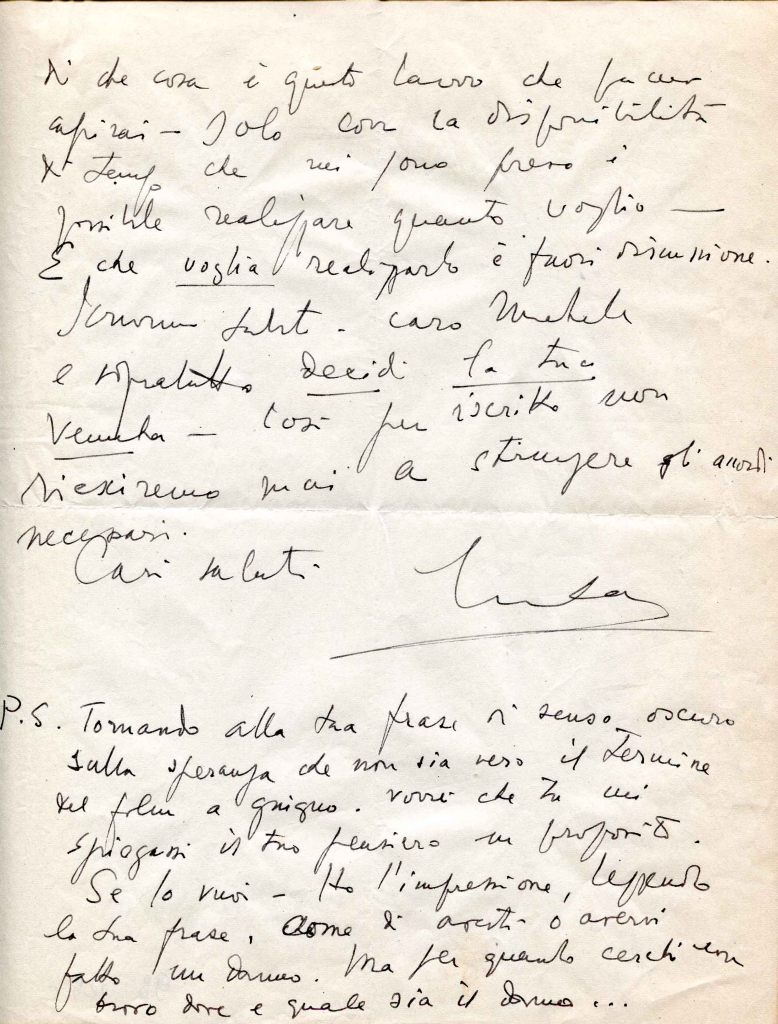
This debate produced an offshoot, at first aesthetic and then also ideological, that would evolve after World War II into one of the components of Italian neorealism. Returning to Italy in 1939 after a long stay in France, Visconti became a catalysing force in the magazine “Cinema”, around which gravitated future film directors such as Giuseppe De Santis, Antonio Pietrangeli, Gianni Puccini and Michelangelo Antonioni himself, as well as figures who later became leading members of the Italian Communist Pary, such as Mario Alicata and Pietro Ingrao. In France, Visconti had gained valuable experience as assistant to Jean Renoir and within a few years this enabled the group to make the transition from theory to practice, involving it in the screenplay and filming of Obsession (1943). Antonioni, however, did not take part in the making of the film: in the same period he also shot his first documentary Gente del Po, released only in 1947. Nevertheless, in the post-war period he remained on friendly terms with Visconti and continued to collaborate with him. For instance, working with Guido Piovene and Antonio Pietrangeli, he wrote the screenplay of Il processo di Maria Tarnowska (b. 8B/5, fasc. 17), which Visconti sought unsuccessfully to film in 1946. The correspondence between the two filmmakers, held in the archive and mostly dating from the period of The Earth Trembles (1948, b. 9B/2, fasc. 129), is also useful for investigating little-known aspects of their relationship, in particular in relation to the interest Visconti took in the literary translations from French that Antonioni made and in his work as a film critic in the late 1940s.


